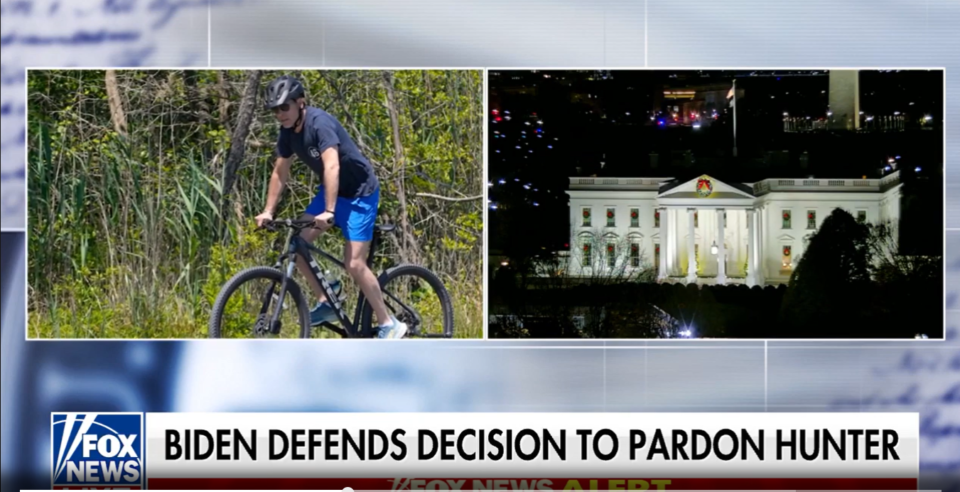
The Biden’s Pardon issued by President Joe Biden to his son Hunter marks a historical moment in American politics, sparking debates over justice, family loyalty, and presidential ethics. The decision, announced weeks before Biden leaves office, intertwines deeply personal motives with national implications.
Hunter Biden’s pardon, involving convictions on tax evasion and illegal firearm possession, comes as the United States grapples with a broader perception of justice being politicized. This article delves into the implications of Biden’s controversial move, its political and legal ramifications, and what it means for the future of American governance.
A Stunning Decision in Context
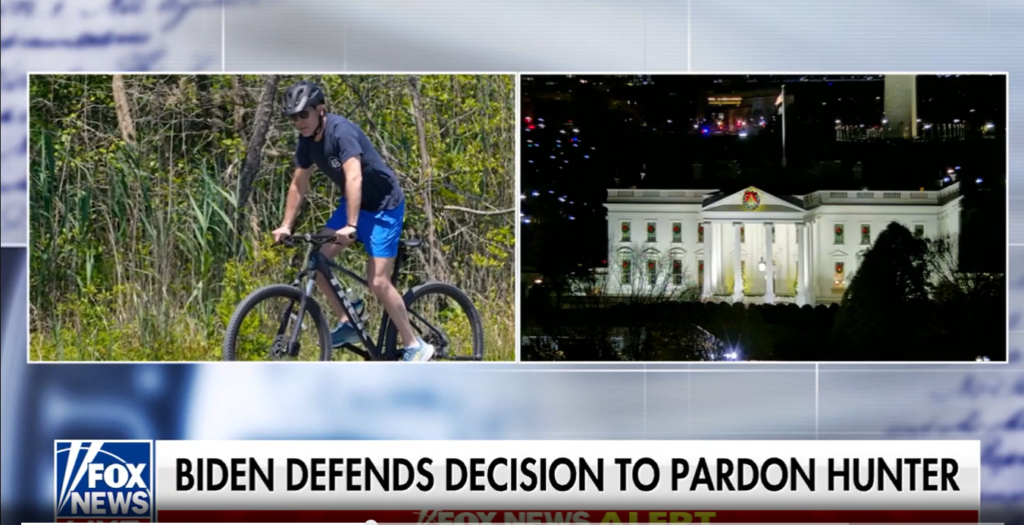
President Biden’s pardon was unexpected, given his consistent emphasis on restoring Justice Department independence following allegations of political interference during Donald Trump’s presidency. Biden’s promise to avoid intervening in his son’s legal matters now stands in stark contrast to his actions, raising questions about the principles that have defined his tenure.
Hunter Biden’s legal troubles stem from tax evasion and firearm charges that many argue received undue attention due to his father’s position. Biden justified the pardon, citing an unprecedented level of scrutiny and selective prosecution against his son. Critics, however, contend that the move undermines the rule of law and tarnishes Biden’s legacy as he exits the White House.
The Political Fallout
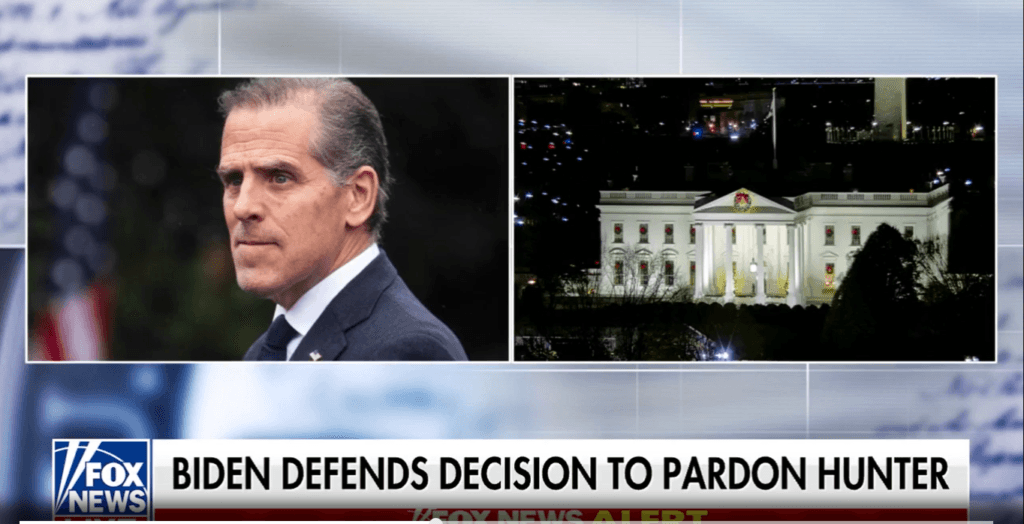
Biden’s decision has unleashed significant political reverberations. It provides a rallying point for Republicans, who have accused the Biden administration of weaponizing justice to protect the president’s family while targeting political opponents.
Former President Trump and his allies were quick to seize the opportunity, using the pardon to deflect from Trump’s own controversial use of pardons during his first term. Trump pardoned close associates and family-connected figures, including Charles Kushner, Roger Stone, and Paul Manafort. Yet, Biden’s intervention gives Republicans a potent argument to claim equivalence between the two presidents’ actions.
The Hunter Biden pardon also intensifies discussions about potential political retribution in Trump’s forthcoming term. Trump’s allies, including incoming FBI director Kash Patel, have signaled intentions to investigate or prosecute figures tied to Biden’s administration, raising fears of escalating cycles of politicization.
Family Loyalty vs. Presidential Ethics

For Biden, the pardon represents a deeply personal decision. Hunter Biden’s struggles with addiction and legal troubles have been highly publicized, making him a lightning rod for partisan attacks. The president’s statement emphasized his role as a father, suggesting that the pardon was motivated by compassion and concern for his son’s well-being.
“No reasonable person who looks at the facts of Hunter’s cases can reach any other conclusion than Hunter was singled out only because he is my son — and that is wrong,” Biden asserted. He further highlighted Hunter’s five years of sobriety and the relentless scrutiny that accompanied his prosecution.
While Biden’s personal reasoning resonates with many Americans, it also raises ethical questions. By intervening, Biden risks eroding public confidence in the impartiality of justice, a principle he pledged to uphold upon entering office.
A Precarious Legacy
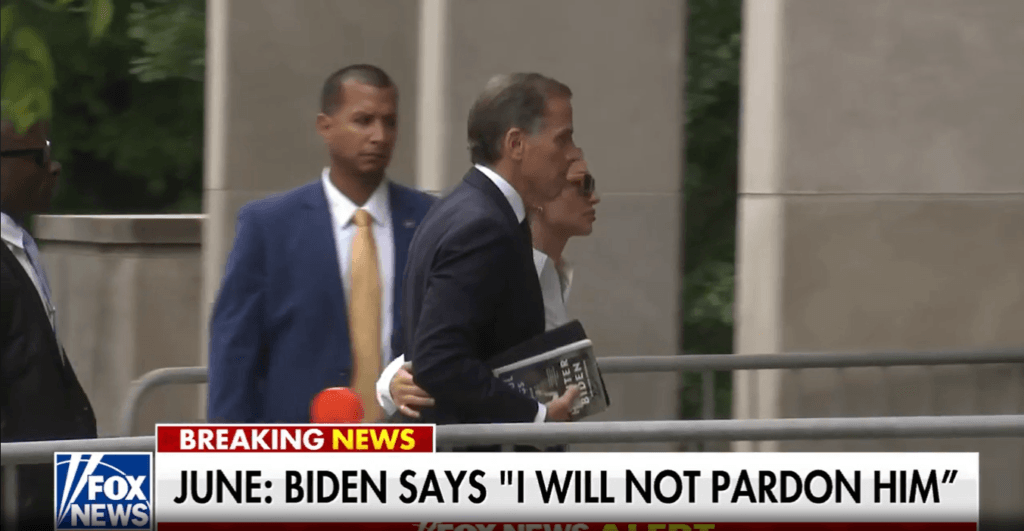
The pardon complicates Biden’s legacy. Despite significant accomplishments, including restoring international alliances and managing domestic crises, the move shifts focus to perceived double standards in his administration.
The timing of the pardon, just weeks before Trump’s second inauguration, also underscores the urgency Biden may have felt to shield his son from potential retribution under a new administration. Trump’s track record of using the justice system to target adversaries adds weight to Biden’s concerns.
Biden’s critics argue that the pardon undermines his credibility and contradicts his efforts to position himself as a president of integrity and fairness. However, his supporters view the decision as a humane act by a father unwilling to see his son suffer from what he deems an unjust system.
Broader Implications for Justice
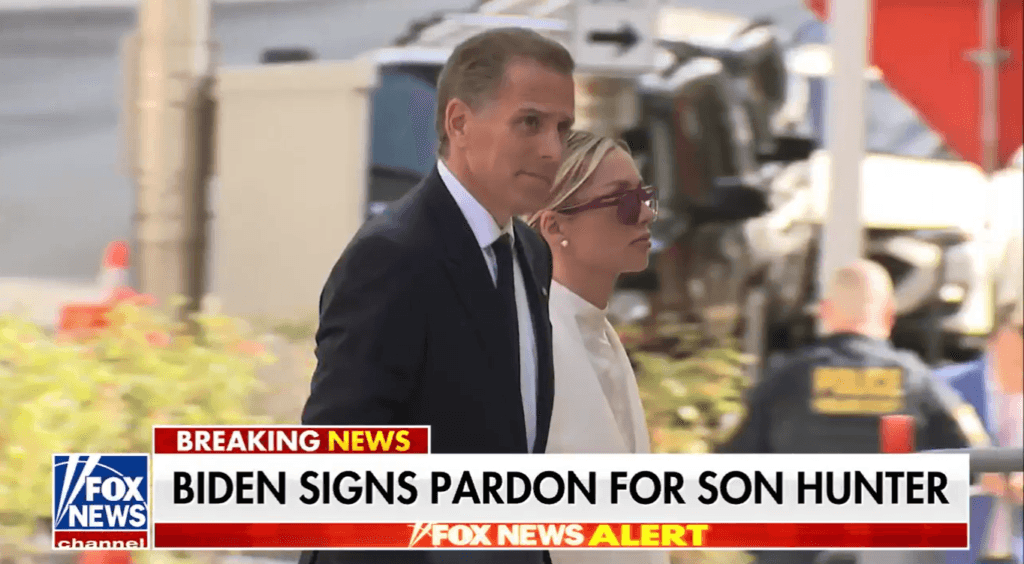
The pardon fuels a broader debate about the politicization of justice in the United States. Trump and Biden both allege that the justice system has been weaponized, albeit from opposing perspectives.
Trump’s frequent attacks on the FBI and Department of Justice intensified after investigations into his election interference and classified documents case. Similarly, Biden’s criticisms of selective prosecution in Hunter’s case echo Trump’s rhetoric, blurring the lines between justice and politics.
These developments risk deepening public distrust in institutions meant to ensure accountability and fairness. If successive administrations use the justice system to target opponents or shield allies, the foundational principle of equal justice under the law may face irreparable damage.
The Road Ahead
As Biden exits the presidency, his decision to pardon Hunter leaves unresolved questions about justice and fairness. The move, while rooted in personal loyalty, has far-reaching implications for the perception of presidential power and the independence of judicial institutions.
Trump’s impending return to the White House further complicates the narrative. His history of using pardons to protect political allies sets a precedent that Biden’s pardon inadvertently reinforces. Meanwhile, Trump’s supporters are likely to push for pardons for January 6 rioters, intensifying debates about accountability and partisanship.
In this fraught political climate, the Hunter Biden pardon may be remembered as a turning point — not just for Biden’s presidency, but for the American justice system as a whole. Whether the nation can rebuild trust in its institutions depends on the actions of leaders willing to prioritize principle over partisanship in the years to come.
Conclusion
President Joe Biden’s pardon of Hunter Biden is a complex and controversial decision that encapsulates the tension between family loyalty and public accountability. While deeply personal, the move carries significant political and legal implications, particularly as the United States navigates a divisive and polarized era.
As Trump prepares to assume office again, the stakes for justice, governance, and public trust have never been higher. How this chapter unfolds will shape not only Biden’s legacy but also the future trajectory of American democracy.


